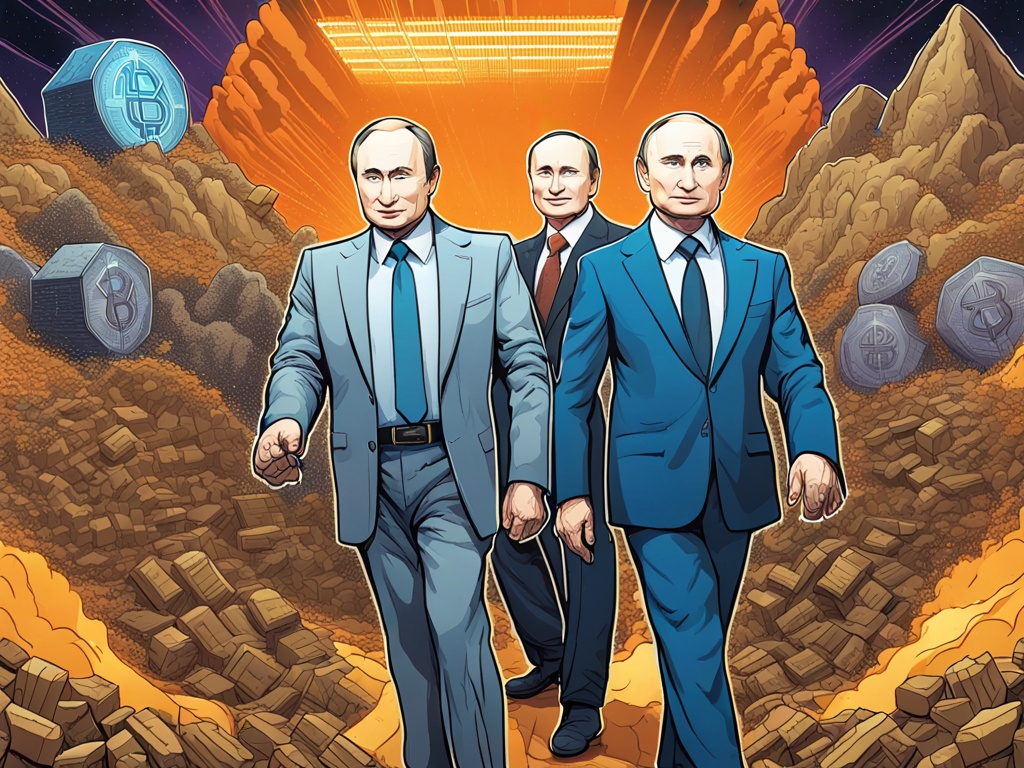Russian Strategy on Cryptocurrency Mining: A New Paradigm 🌐
This article delves into President Vladimir Putin’s recent assertions regarding the future of cryptocurrency mining in Russia, emphasizing the crucial role of power resources. During a session with Alexei Nechayev, the head of the New People party, key insights were shared about the development of a robust crypto mining framework in the nation. The overarching theme is the vital importance of energy surpluses while addressing the challenges arising from mining practices in regions with inadequate electricity supplies.
Focus on Energy-Rich Locations for Mining ⚡
Nechayev informed Putin that cryptocurrency mining should strategically take place in areas abundant in energy supplies. He mentioned that these locations have the potential to significantly ramp up their mining activities. Nechayev stated:
“The aim is not merely to rank among the top crypto mining industries globally but to strive for leadership. To achieve this, we need to
expand our efforts fivefold. It’s critical to identify suitable locations for mining that have surplus electricity.”Alexei Nechayev, New People Party Leader
The Kremlin embraced Nechayev’s insights, agreeing on the need for development in the crypto mining sector but underscoring that operations should be restricted to those regions that can support such activities without burdening the existing electrical infrastructure. Putin expressed concern about specific areas already facing power deficits exacerbated by mining ventures.
Regulatory Measures and Bans 🛑
Recently, Moscow has instituted a temporary ban on crypto mining operations during the fall and winter months, extending through 2031. This prohibition affects several regions, including Zabaikalsky Krai, Buryatia, Karachay-Cherkessia, Ingushetia, Kabardino-Balkaria, and Dagestan. Furthermore, the ban includes territories in Ukraine that are now under Russian control, specifically parts of the Zaporizhzhia and Kherson regions, along with the so-called Luhansk and Donetsk People’s Republics. The Russian energy ministry has indicated that this list may grow, reflecting ongoing concerns about electricity consumption levels.”
Potential Economic Gains from Crypto Mining 💰
The potential expansion of Russia’s crypto mining industry could yield annual revenues amounting to 200 billion rubles (approximately $2 billion). Nechayev highlighted that while there is a fundamental need to nurture this industry, it must be done judiciously and steadily. It is noteworthy that, as of November 1 this year, Putin has officially endorsed the crypto mining industry as legal.
Moreover, he conveyed to Nechayev that bolstering this sector could present significant advantages, particularly in the realm of artificial intelligence. Key players in the Russian mining landscape have expressed readiness to support state-run AI initiatives using the capabilities of their data centers.
Calls for Constructive Dialogue 🤝
Despite the establishment of regulations, some lawmakers concede that outright bans on crypto mining might drive operations into secrecy. Yuri Stankevich, Deputy Chair of the State Duma Committee on Energy, acknowledged that miners will continue their operations as long as profitability exists. Sergey Sasim, from the National Research University Higher School of Economics, advocated for a paradigm shift wherein government discussions focus on collaboration rather than restrictions.
This year, authorities have intensified their crackdown on unregulated mining activities, dismantling numerous illegal operations throughout the country. These illicit setups are often accused of tapping into local power supplies without authorization. Experts speculate that most of these activities are directed towards cheaper and more efficient mining endeavors.
Hot Take: Navigating the Future of Cryptocurrency Mining in Russia 🔍
In conclusion, Russia’s approach to cryptocurrency mining is set against a backdrop of energy resource management and potential economic benefits. By identifying regions with adequate electricity reserves, the nation aims to establish itself as a formidable player in the global cryptosphere. However, balancing regulatory measures with the realities of the mining industry remains a pivotal challenge. As the government recognizes the necessity for dialogue with miners, the future landscape will likely be influenced significantly by the interplay of energy policy and economic strategy.
Sources:





 By
By
 By
By
 By
By
 By
By
 By
By